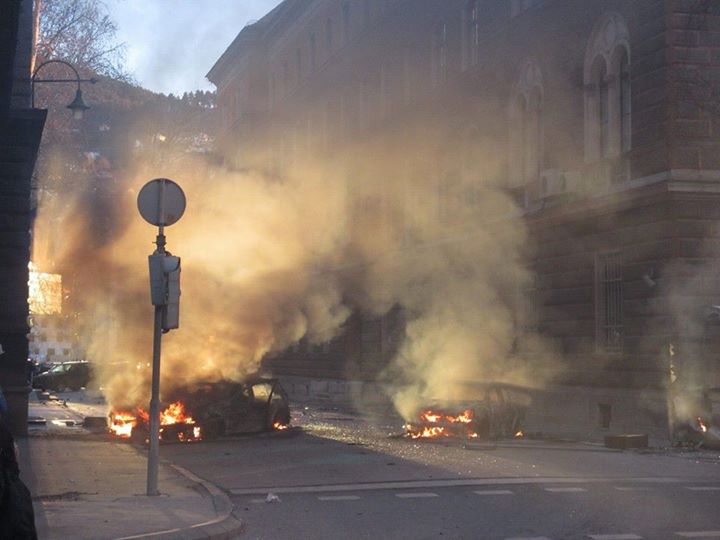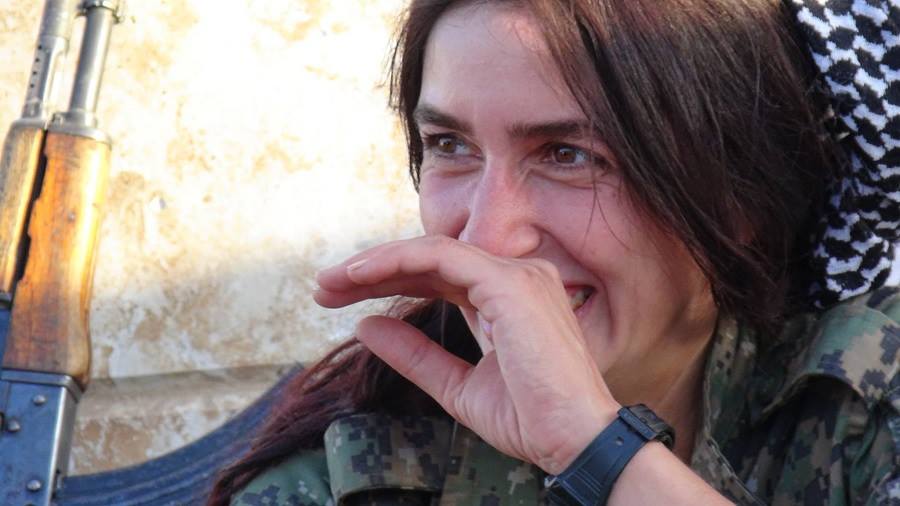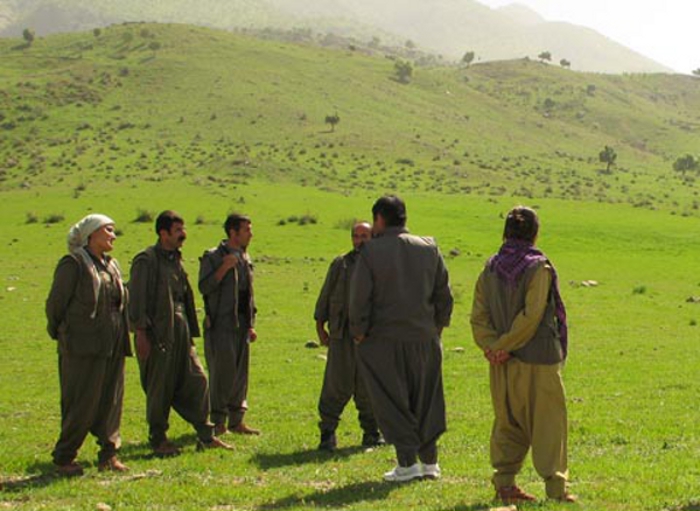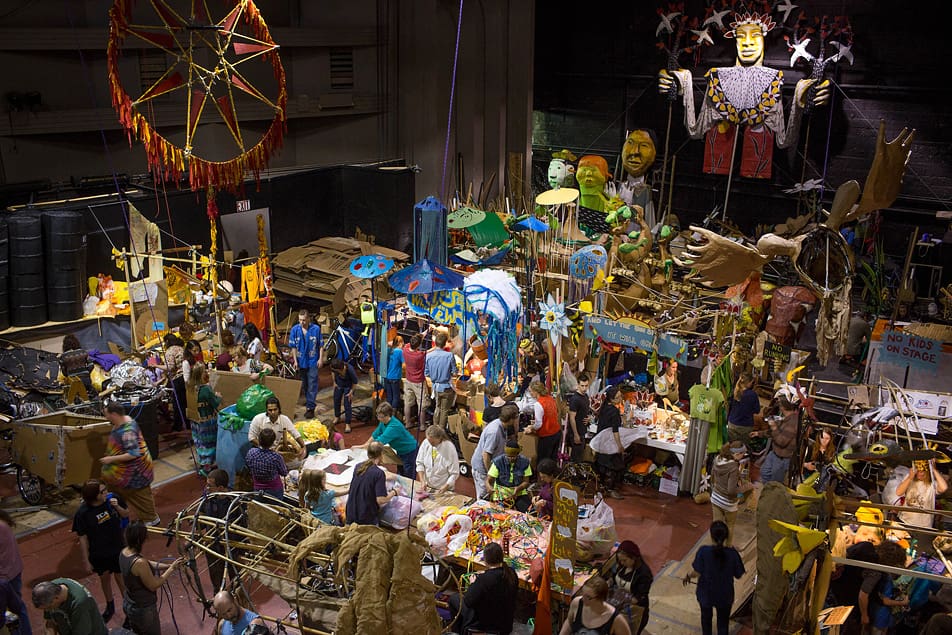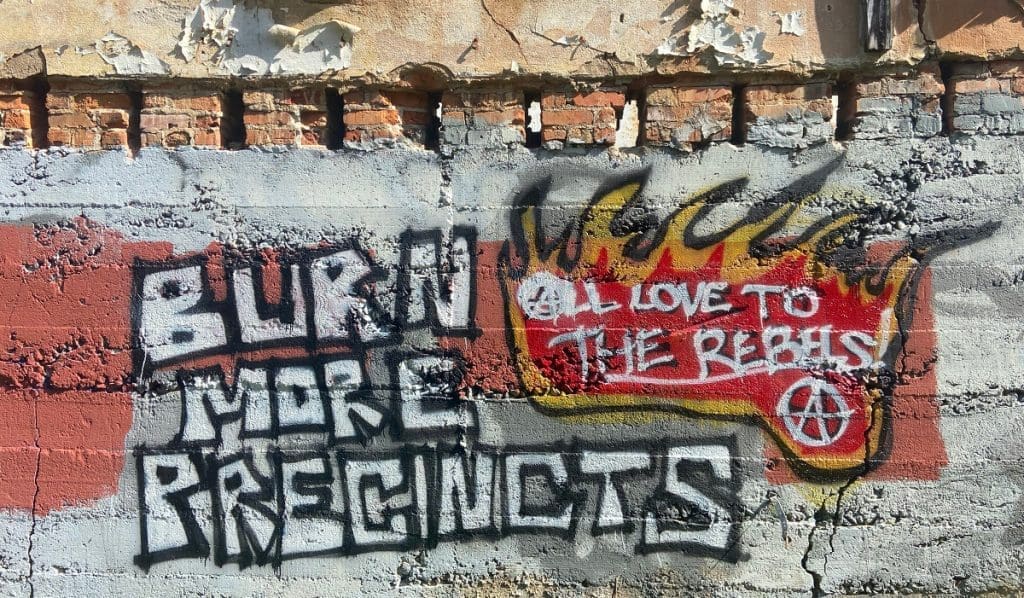Protests Across Bosnia Are a “Collective Nervous Breadown”
by Lily Lynch for the Balkanist
8 February 2014 (original post)
“He who sows hunger reaps anger,” warned the red graffiti on a Sarajevo government building this week. The message hinted at the depth of poverty and disillusionment in Bosnia and Herzegovina (BiH) that has driven people to join demonstrations across the divided country, where the unemployment rate is about 40 percent. Protesters have since stormed and ransacked government buildings in Tuzla, Zenica, Mostar, and in the capital city of Sarajevo, where the headquarters of the presidency was also set ablaze. Some protesters allegedly threw firecrackers and stones at police, who responded with rubber bullets and tear gas. Hundreds have been injured. On Friday, activist Darko Brkan called the protests “a collective nervous breakdown”.
Demonstrations began on Tuesday in the northern city of Tuzla, where some 10,000 former workers gathered to demand that the local government investigate questionable privatizations they said had destroyed companies and their livelihood. Among the troubled firms was the Konjuh furniture factory, which was founded in 1885 by Austro-Hungarian entrepreneurs. During the socialist period, the company employed 5,300 employees and sold high-quality wood furnishings to clients on five continents. But by December 2012, the company employed just 400 workers, some of whom had gone on hunger strike. Also present were demonstrators from the 36-year-old Dita detergent factory — once the biggest producer of liquid detergents and washing powders in the country. Former Dita employees have protested over unpaid wages for at least two years.
The government of Tuzla canton told the crowd of largely middle-aged men that they had no authority over privately-owned companies. However, that may not have been entirely true. The majority of shareholders in the Konjuh furniture factory transferred their voting rights to the government of Tuzla canton several years ago.

Numerous protests have been held in Tuzla in recent years over the disappearance of jobs and the environmental devastation of what is now a post-industrial area. The Tuzla power station burns 330,000 tons of coal every year, and has seriously polluted the Jala River. Other pollutants have come from the factories, including chemical plants that have recently been shut down.
Many residents of Tuzla express Yugonostalgic sentiments, lamenting that the “reliable health service” and access to information offset some of their concerns about pollution in socialist times. They have long complained about being ignored by the authorities, and protests, pickets, hunger strikes, and sit-ins, in the former industrial boomtown are common.
The first clashes between police and protesters in Tuzla came on Wednesday, and continued through the following day. On Friday, dramatic images started appearing on Twitter: the local government building surrounded in still smouldering fires; broken computer monitors, scattered papers, and other debris thrown from the offices above; graffiti on facades calling on all politicians to resign.
Then the protests spread. Though most of the demonstrations were confined to the Federation — the Bosniak and Croat half of Bosnia and Herzegovina — several hundred Serbs showed up for a solidarity protest in Banja Luka, the Bosnian Serb capital.
Groups of organized protesters encouraged this kind of solidarity. A movement calling itself UDAR — the same name as opposition leader Vitali Klitshko’s political party in Ukraine — say they spontaneously formed this week as a response to the workers’ protests in Tuzla and are now “calling for an extension of the movement”. They’ve already produced a pretty sophisticated three-minute mobilization video available with both English and German subtitles. For UDAR, it’s important “that Bosniaks, Serbs and Croats are fighting together and reject the nationalism that is often used by the government to create splits between people.”

Despite the fact that many of them used determinedly anti-nationalist rhetoric, it was difficult for some diplomats to sympathize with the protesters after viewing images of plumes of black smoke rising over Sarajevo, cars (allegedly belonging to politicians) upside down in a drainage ditch, or reading news that historical archives from the Austro-Hungarian period had been incinerated in a fire.
Both the EU and United States were quick to issue condemnations of the “violent behavior”, which they described as “deplorable” and “inexcusable”. The EU thanked law enforcement agencies “for their efforts in extremely difficult circumstances.”
However, we received one report of possible police brutality from a journalist in Sarajevo: “I walked right past the old municipal building that protesters had just torched. A few minutes later, I watched a policeman billy-clubbing three protesters as other cops held them immobile.” There were also reports of police brutality earlier in the week.
The demonstrators blamed the police for all of the violence. A “Declaration by Workers and Citizens of the Tuzla Canton” released late Friday evening explained that, “Accumulated anger and rage are the causes of aggressive behaviour. The attitude of the authorities has created the conditions for anger and rage to escalate.”
Still, others have been left wondering how people across BiH could be so angry with the government that they would ransack and burn its buildings in several major cities.

Some believe the answer is built into the very foundation of the post-war state. The Dayton Peace Agreement, signed in Ohio in 1995, turned the country into a purgatory of two ethnically-segregated entities. Ever since, the international community’s guiding principle for building democracy in BiH has been “separate but equal”, with few positive results. Unfortunately, this has made it almost impossible for anyone to accept a supranational “Bosnian” identity.
In addition, ethnic elites have become the targets of scorn, and are increasingly viewed as corrupt servants of a dysfunctional system that keeps BiH hungry and poor, polarized and frozen. As another election approaches, the politicization of ethnicity and the ethnicization of politics appears even more absurd. As someone spray painted on the government building in Tuzla, “Death to nationalism”.
List of demands: http://www.criticatac.ro/lefteast/demands-sarajevo-protestors/
Further information and updates click here…

